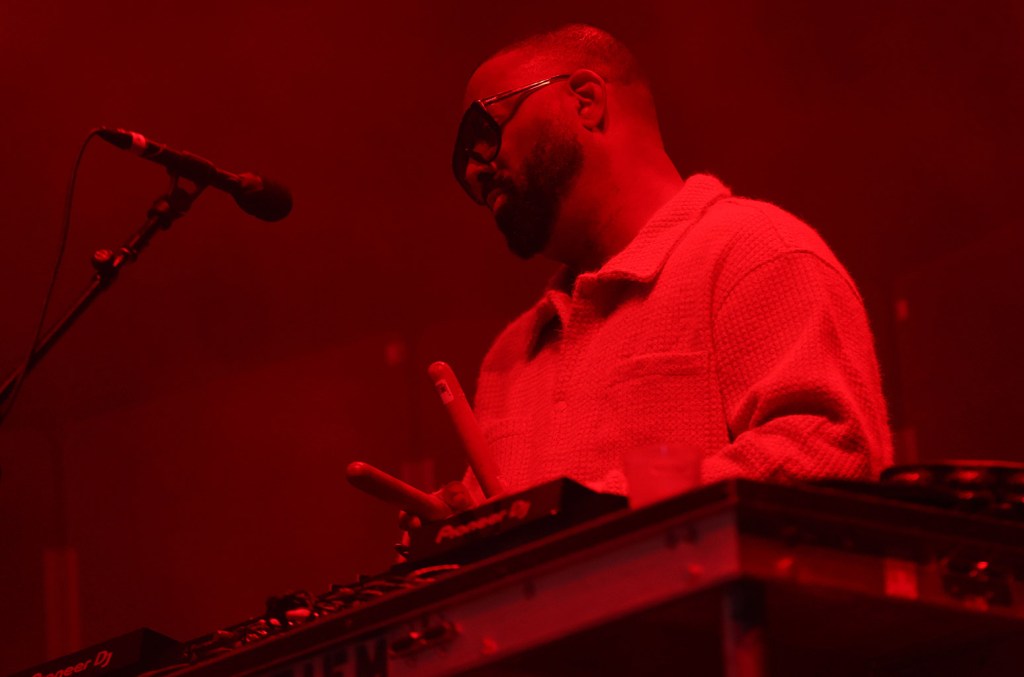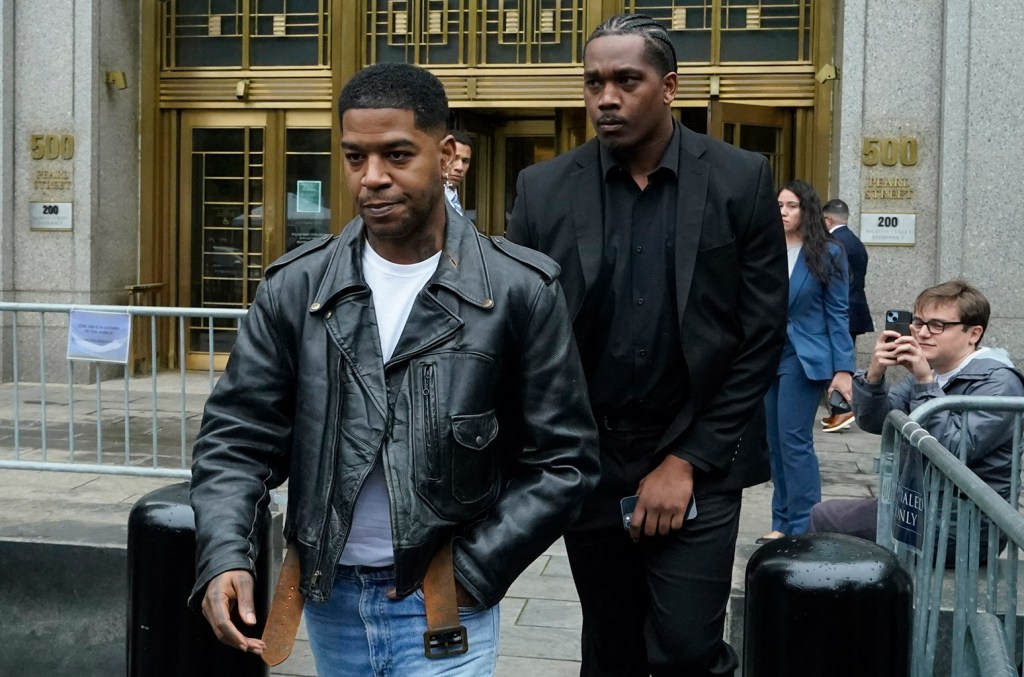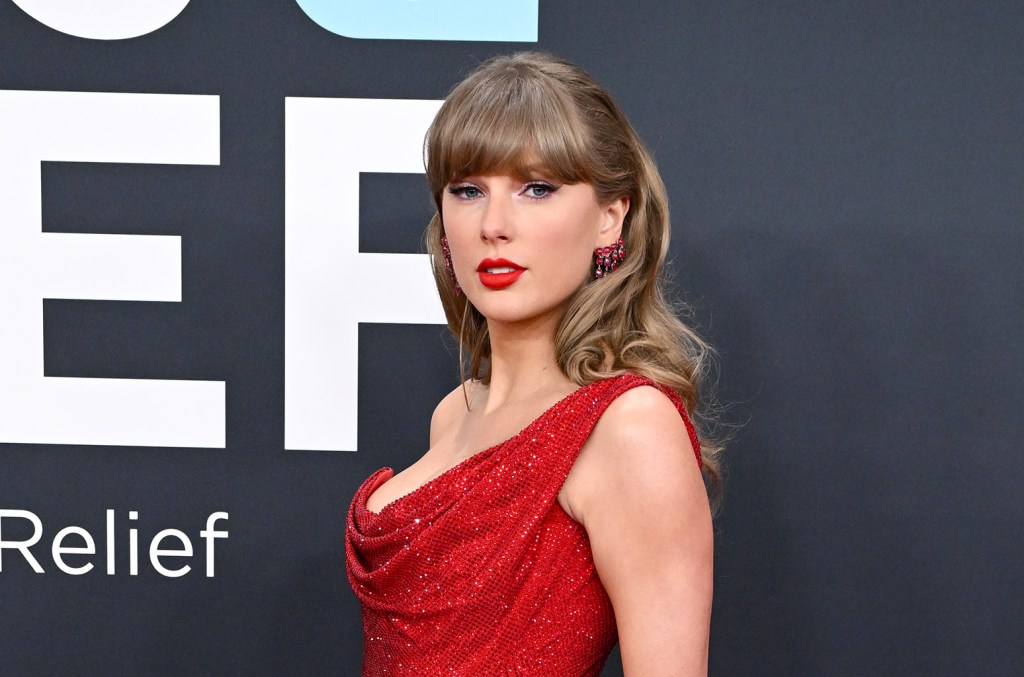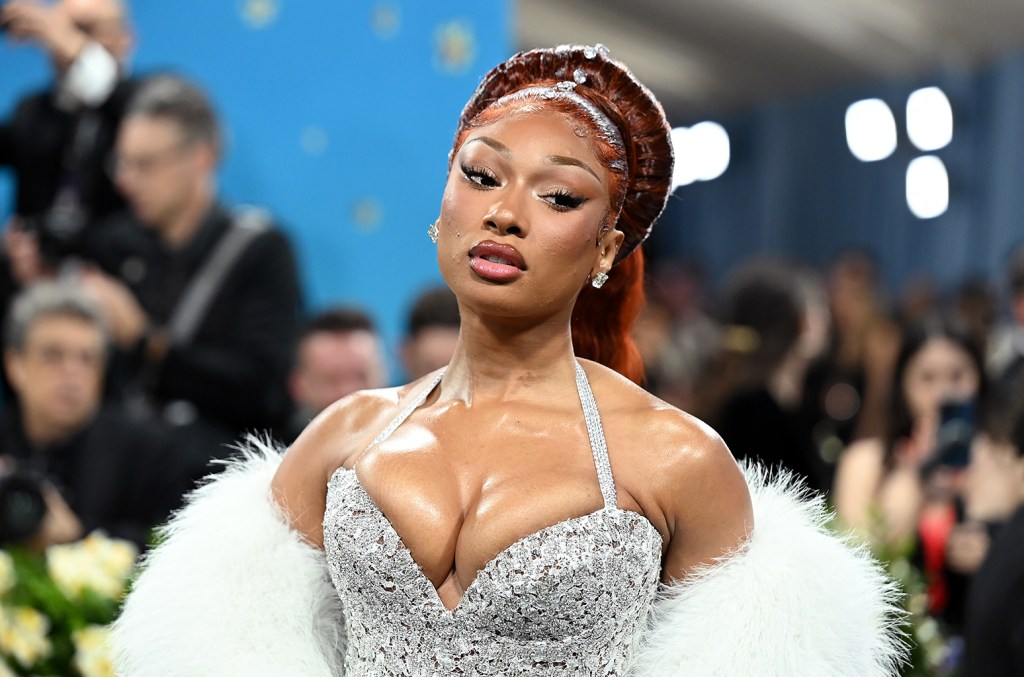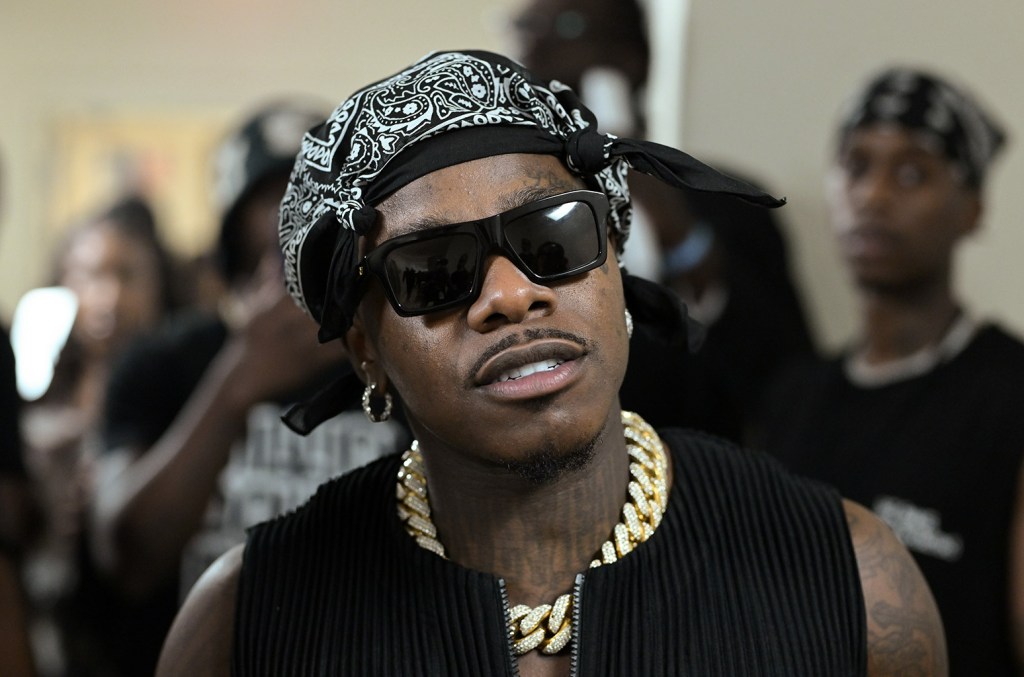Legal
Page: 16
Months after hip-hop producer Madlib filed a lawsuit against his former manager and business partner Eothen “Egon” Alapatt, the exec is now suing him right back — blasting him for “having the audacity to bring this mean-spirited personal action” and citing a potential release of music by the late Mac Miller.
In a countersuit filed last week in Los Angeles court, Egon accused Madlib of a wide range of “misconduct” following the sudden end of their long partnership — a split that Egon said came after he had spent more than a decade building Madlib’s career and catering to his “whims and eccentricities.”
“Madlib had the audacity to bring this mean-spirited personal action against Egon, accusing him with no basis or any proof,” Kenneth Freundlich, the manager’s lawyer, writes in the May 14 cross-complaint. “Instead, under the apparent spell of his transactional lawyer/manager, it is Madlib who has unlawfully absconded with [shared] property.”
Trending on Billboard
The lawsuit did not disclose the identity of the “lawyer/manager” in question. Madlib’s attorney did not immediately return a request for comment on the allegations in the countersuit.
Madlib, a critically acclaimed producer known for his work with Kanye West (now Ye) and the late MF Doom, filed his lawsuit against Egon in October, accusing him of “rank self-dealing” and “pervasive mismanagement.” The case accused Egon of abusing his power over their companies (record label Madicine Show and merch firm Rapp Cats) to profit at Madlib’s expense.
But in last week’s countersuit, it was Egon’s turn to level accusations. After more than a decade together, he says Madlib “cut off all ties” in 2022 and launched his own label called Madlib Invazion — a name he says belongs to their old company. In one of his many claims, he says Madlib is infringing Madicine Show’s trademarks by using that name.
“It could not be clearer that Madlib did this to usurp and disrupt Madicine Show’s business and to blatantly trade on the goodwill created by Madicine Show in the name ‘Madlib Invazion,’” Egon’s lawyers wrote. “Because of Madlib’s nefarious formation of a record label with the identical name … the public is confused and misled.”
Egon says Madlib’s new label is interfering with music projects that legally belong to the old company, including the release of a years-old recording of the late Miller that has long been rumored to be in the works. (Miller’s estate is not involved in the dispute nor accused of any wrongdoing.) He also says Madlib is refusing to complete an album for Freddie Gibbs that they are contractually obligated to deliver to Sony Music.
The lawsuit from Madlib is the second legal battle Egon has faced in recent years. Back in 2023, MF Doom’s widow (Jasmine Dumile Thompson) filed a case against him, claiming he stole dozens of private notebooks belonging to the late hip-hop legend and was refusing to return them in the years since Doom’s 2020 death.
In a response filing, Egon’s lawyers blasted that case as “baseless and libelous” and part of a “year-long smear campaign.” The lawsuit ended last year with a settlement, which reportedly saw the notes returned to Thompson.
Kid Cudi took the stand as a witness in Diddy’s sex trafficking and racketeering trial on Thursday (May 22). Following his hours-long testimony surrounding his brief romance with Cassie in 2011, Cudi took to X to reflect on his time in court and thanked his fans for their support along the way.
“I’ve been seeing all the love and support and I just want to say thank you so much, man,” Cudi said. “People been hitting me up the past week just checking in and even today, it really means a lot to me, man. You guys are the best. I love y’all.”
Trending on Billboard
The Cleveland native continued: “This is a stressful situation. I’m glad it’s behind me. Yeah, I love y’all.”
Producer BNYX and Cudi’s fans showed their appreciation in his replies on X for taking the stand. “You did great Scott! Glad it’s over and done with,” one person wrote. While another added: “I’m so proud of you baby!!!!! Take time for yourself , you did that.”
The “Day ‘n’ Nite” rapper was questioned on the stand Thursday about his short stint dating Cassie in the early 2010s, and Cudi opened up about Diddy allegedly setting his Porsche on fire with a Molotov cocktail. Cudi also recounted a break-in of his home around the time of his relationship with Cassie, which he tied to Diddy.
Cassie’s initial bombshell 2023 lawsuit against Combs accused Diddy of blowing up Kid Cudi’s car in his driveway after repeatedly threatening Cudder.
“Too much danger, too much uncertainty of what could happen if we continued to see each other,” she reportedly said of why she ended things romantically with Cudi during her emotional testimony last week.
“[Diddy] said he wanted Scott’s friends to see Scott’s car blown up,” Cassie recalled. “We met, [Diddy], [Kid Cudi] and me. [Kid Cudi] said, ‘What about my vehicle?’ And [Diddy] said, ‘What vehicle?’ And that was the end of the meeting.”
The Bad Boy mogul could be sentenced to life in prison if found guilty on all counts of sex trafficking and racketeering. Diddy’s trial is expected to last into July.
Watch Cudi’s full statement on his experience at the Diddy trial below:
Taylor Swift is no longer facing a subpoena in the messy legal battle between her friend Blake Lively and Justin Baldoni after Baldoni dropped the document request, which Swift’s reps had fiercely criticized as “tabloid clickbait.”
Lively’s reps confirmed to Billboard on Thursday (May 22) that the Baldoni camp has dropped separate subpoenas they served on both Swift and her longtime law firm Venable earlier this month in litigation over the movie It Ends With Us, in which Baldoni and Lively are hurling dueling accusations of sexual harassment, retaliation and defamation.
Baldoni’s lawyers had sought communications between the Swift and Lively teams, claiming they heard from an unnamed source that Lively had asked Swift to delete text messages and tried to extort the pop superstar into publicly supporting her in the lawsuit. Lively’s reps denied those contentions as “categorically false,” and a judge quickly struck those claims from the case docket as improper, irrelevant and “potentially libelous.”
Trending on Billboard
Lively’s spokesperson says in a statement shared with Billboard that they are “pleased that Justin Baldoni and the Wayfarer parties have withdrawn their harassing subpoenas to Taylor Swift and her law firm.
“We supported the efforts of Taylor’s team to quash these inappropriate subpoenas directed to her counsel and we will continue to stand up for any third party who is unjustly harassed or threatened in the process,” the statement continues.
“The Baldoni and Wayfarer team have tried to put Taylor Swift, a woman who has been an inspiration for tens of millions across the globe, at the center of this case since day one,” Lively’s rep adds. “Faced with having to justify themselves in federal court, they folded. At some point they will run out of distractions from the actual claims of sexual harassment and retaliation they are facing.”
Venable also confirmed in a court filing Thursday that Baldoni withdrew his subpoena targeting the law firm.
Reps for Baldoni and Swift did not immediately return requests for comment Thursday. But a spokesperson for Swift previously said she had no involvement in It Ends With Us and slammed Baldoni for trying to “use Taylor Swift’s name to draw public interest by creating tabloid clickbait instead of focusing on the facts of the case.”
The It Ends With Us legal battle began in December when Lively alleged in a lawsuit that Baldoni had sexually harassed her on the set of the movie released last summer and later orchestrated a public relations smear campaign to retaliate against her for complaining about the behavior.
Baldoni then countersued Lively for defamation and claimed the actress leveraged her relationship with a “megacelebrity friend,” presumed to be Swift, to bully her way into more control of It Ends With Us.
Baldoni’s legal filing included text messages concerning an alleged meeting attended by “Ryan and Taylor,” seemingly referencing Swift and Lively’s husband, Ryan Reynolds. In one message sent by Lively, the actress called Swift and Reynolds her “most trusted partners” and compared them to the “dragons” in the TV show Game of Thrones.
“The message could not have been clearer,” Baldoni’s lawyers wrote in the countersuit. “Baldoni was not just dealing with Lively. He was also facing Lively’s ‘dragons,’ two of the most influential and wealthy celebrities in the world, who were not afraid to make things very difficult for him.”
Tory Lanez’s father, Sonstar Peterson, joined NewsNation’s CUOMO hosted by Chris Cuomo on Wednesday night (May 21), where he revealed that his son is being transferred to a new prison after being stabbed while in prison earlier in the month.
Peterson explained that Lanez isn’t receiving any special treatment, but his move is part of California prison protocol following an act of violence.
“He’s being moved because it’s part of the prison’s protocol that when a situation like this happens. They believe it’s better for him to be in another facility, and so he is being moved as we speak,” he said. “One thing of course, we are concerned about is because my son is a high-profile person and when things like this happen, there is always some kind of weird news going out trying to spin it to be something else.”
Trending on Billboard
Lanez was attacked on May 12 by another inmate at California Correctional Institution in Tehachapi around 7:20 a.m. PT, and rushed to a nearby hospital, a spokesperson for the prison told ABC News. A message posted to the singer’s verified Instagram account said he suffered a pair of collapsed lungs and was stabbed 14 times in total, but was in “good spirits” while recovering.
Lanez’s father said that when he arrived at the hospital, he spoke to correctional officers who claimed they were surprised that the singer was involved in an altercation because Tory, according to his dad, “is someone who is liked. He’s not someone who is a troublemaker.”
The Toronto native is currently serving a 10-year sentence in prison after being convicted on three felony counts tied to him shooting Megan Thee Stallion in the feet during an argument outside of a Hollywood Hills party in July 2020.
Between the stabbing and claims of new evidence, Lanez’s case is picking up steam once again. Rep. Anna Paulina Luna of Florida’s 13th district called for California’s Gov. Newsom to pardon Lanez. The congresswoman claimed that there was new evidence exonerating Lanez.
Unite the People attorney Walter Roberts claimed that Kelsey Harris’ bodyguard, Bradley James, filed an affidavit saying he overheard Harris admit to firing the weapon and not Lanez.
Megan Thee Stallion posted a message to her TikTok calling Lanez a “demon” and pushed back against the hate she’s received in recent weeks regarding the shooting case, while SZA also came to Meg’s defense. “FACTS ARE FACTS, he did it , it was PROVEN IN COURT,” she wrote in part. “Ain’t no new f–king evidence yall been saying the same s–t for years.”
Megan’s legal team also released a report on Thursday (May 22) pushing back against the claims of new evidence and support from Tory fans, arguing that the findings are filled with “false narratives” from “foolish bullies.”
Watch the interview between Chris Cuomo and Tory’s father below.
Megan Thee Stallion’s legal team released a detailed report Thursday blasting claims from Tory Lanez’s supporters about new evidence that will exonerate him, calling them as “false narratives” from “foolish bullies.”
The report came after Lanez’s legal team claimed they had uncovered new evidence that would prove he did not shoot Megan in 2020, a crime for which he was convicted in 2022 and is currently serving a 10-year sentence.
In the 31-page document, Megan’s attorneys said claims of a new witness were “unsworn rumors being spread as fact” and that Ring camera footage of the 2020 shooting – purported to be new evidence of Lanez’s innocence – was already played at his trial.
Trending on Billboard
“Despite Mr. Lanez being convicted at trial by overwhelming evidence (that included his own admission of his guilt), he and his team – flanked by any ignorant person they can find – have pushed whatever misleading narrative they can,” said Alex Spiro, Megan’s longtime attorney.
“One by one, their misleading statements unravel and all that is left is the simple truth: he was convicted by overwhelming evidence and those who seek to traumatize the victim of the crime should be called out as foolish bullies,” Spiro added.
The new response echo Megan’s own statement on the claims. In a social media post Tuesday, the superstar said that “FACTS ARE FACTS” and that the case was already decided in court: “TORY PLEASE LEAVE ME ALONE you are a f–king demon.” SZA has also expressed support for Megan, saying Wednesday that she was “shocked” by statements supporting Lanez.
Lanez was convicted in December 2022 on three felony counts for shooting Megan in July 2020 during an argument following a pool party at Kylie Jenner’s house in the Hollywood Hills. In August 2023, he was sentenced to 10 years in prison. He has filed an appeal of that verdict, which remains pending.
Last week, Lanez’s legal team from the group Unite The People held a press conference claiming they had new evidence in the case. They argued that Bradley James, a bodyguard of Pete’s former friend Kelsey Harris, had overheard Harris say that she fired the gun – the central defense argument advanced by Lanez’s team during his trial.
Then earlier this week, Rep. Anna Paulina Luna (FL-R) called for the singer to be pardoned, claiming there was new “compelling evidence” that would exonerate him. In a later interview, Luna cited surveillance footage that she said corroborated James’ account.
But in Thursday’s report, Megan’s team said both of those claims were false. They noted that James was “not present at the scene of the crime” and had never spoken publicly about the case, in court or otherwise.
“James has not publicly addressed these claims himself — Peterson’s team merely alleges what James said,” Spiro and the other lawyers write. “Despite being cited as a key source, James failed to appear at the press conference to support these allegations.”
As for the surveillance footage, they argued that was nothing new: “There is no new Ring camera footage,” Megan’s lawyers write. “The Ring camera footage was previously admitted as evidence during Lanez’s trial, it was played for the jury, and the footage captured the sound of 5 gunshots.”
They also say other claims from Lanez’s supporters – including longstanding suggestions that DNA evidence calls his guilt into question – are also false: “When the firearm was tested by DNA experts, testing established that there was a 90% chance that the DNA found came from a man.”
A representative for Unite The People did not immediately return a request for comment. Lanez’s appeal of his verdict, lodged with California’s 2nd Appellate District, has been fully briefed since October but has not yet been argued before the court.
Universal Music Group (UMG) and the Beastie Boys have both reached confidential settlements to end lawsuits in which they accused restaurant chain Chili’s of using their music in social media advertisements without permission.
Two court filings on Wednesday (May 21) informed federal judges that Chili’s owner Brinker International agreed to settlements with both UMG and the Beastie Boys during a mediation session two weeks earlier. The terms of the settlements have not been revealed, as is typical in these types of lawsuits.
UMG and the Beastie Boys both sued Brinker in 2024, alleging Chili’s featured their copyrighted music in advertisements on TikTok, Instagram and other social media platforms without buying so-called “synch” licenses.
Trending on Billboard
While social media platforms provide huge libraries of licensed music for users to add to their videos, a brand must purchase a special synch license if it wants to include a song in any commercial or promotional content.
The Beastie Boys, who are famously averse to their music appearing in advertisements, claimed in a July lawsuit that Brinker used their iconic 1994 song “Sabotage” in a promotional video without permission.
To add insult to injury, the Beastie Boys said this Chili advertisement also showed three men in “70s-style” wigs, fake mustaches and sunglasses carrying out a “robbery” of food ingredients from a Chili’s. The rap trio claimed these visuals clearly evoked the “Sabotage” music video, which featured Adam “Ad-Rock” Horovitz, Michael “Mike D” Diamond and the late Adam “MCA” Yauch in similar attire.
Related
Click ‘Edit’ to Select Content
05/21/2025
UMG followed up with its own lawsuit this past October, alleging that dozens of Chili’s social media advertisements used unlicensed music from the label. UMG said the restaurant company’s wrongdoing extended to more than 60 songs by artists including Ariana Grande, Justin Bieber, Mariah Carey, Lady Gaga, Snoop Dogg, Lana Del Rey, ABBA, Luke Bryan, Travis Scott, Bruno Mars, Lil Nas X, Earth Wind & Fire and The Weeknd.
According to Wednesday’s court filings, both UMG and the Beastie Boys have reached agreements “in principle” to end their claims against Brinker. The settlement deals are currently being finalized, and both lawsuits are expected to be closed by early July.
A UMG rep declined to comment on the settlement news. Spokespeople for the Beastie Boys and Brinker did not immediately return requests for comment.
Numerous brands have faced lawsuits in recent years from music companies and artists over the use of copyrighted songs in social media ads. All three major labels sued drink maker Bang Energy for this in 2021, leading to closely-watched judgments in favor of UMG and Sony.
In July, Kobalt and other music publishers brought lawsuits against more than a dozen NBA teams over the use of songs in social media videos, leading to a bevy of settlements earlier this year. And just last month, a Detroit-area Ford dealership settled claims that it unlawfully featured Eminem’s “Lose Yourself in TikTok videos.
Kneecap band member Liam O’Hanna has been charged with a terror offense by London police after he allegedly waved a Hezbollah flag onstage, according to the BBC.
The charge comes about six months after the alleged incident, during which the 27-year-old Irish musician — whose stage name is Mo Chara — is said to have displayed the flag during his band’s gig at the O2 Forum on Nov. 21, 2024. The London Metropolitan Police only learned of the alleged offense in April, when a video of the concert surfaced online.
Hezbollah, an Iran-backed Lebanese Shia militia that the United States has designated a Foreign Terrorist Organization, is banned in the U.K., with the BBC reporting that it is illegal to express support for the group. The same goes for Hamas, a Palestinian terrorist organization that Hezbollah has backed amid the former’s ongoing conflict with Israel.
O’Hanna is reportedly due to appear at Westminster Magistrates’ Court on June 18.
The update is just the latest development in a series of controversies for Kneecap, which made headlines in April for ending its Coachella set with the following message displayed onscreen: “Israel is committing genocide against the Palestinian people. It is being enabled by the U.S. government who arm and fund Israel despite their war crimes. F— Israel; free Palestine.”
While some criticized the Coachella message, some fellow musicians — including Massive Attack, Pulp and Fontaines D.C. — expressed support for the group in an open letter. The Belfast trio has been one of the most outspoken voices in the music world in supporting Palestine amid Israel’s war on Hamas, which began Oct. 7, 2023, when the terrorist group killed 1,200 Israelis and kidnapped 250 more. More than 53,000 Palestinians have since died in the violence, according to The Associated Press.
Kneecap again drew criticism when footage of the group allegedly calling for the deaths of British MPs (members of parliament) in 2023 resurfaced online in April, shortly after London authorities announced that they were assessing a video taken of a band member appearing to say “up Hamas, up Hezbollah.” Around that time, Kneecap released a statement: “Let us be unequivocal: we do not, and have never, supported Hamas or Hezbollah,” the band wrote. “We condemn all attacks on civilians, always. It is never okay. We know this more than anyone, given our nation’s history. We also reject any suggestion that we would seek to incite violence against any MP or individual. Ever. An extract of footage, deliberately taken out of all context, is now being exploited and weaponised, as if it were a call to action.”
“We also reject any suggestion that we would seek to incite violence against any MP or individual,” it continued. “Ever. An extract of footage, deliberately taken out of all context, is now being exploited and weaponised, as if it were a call to action.”
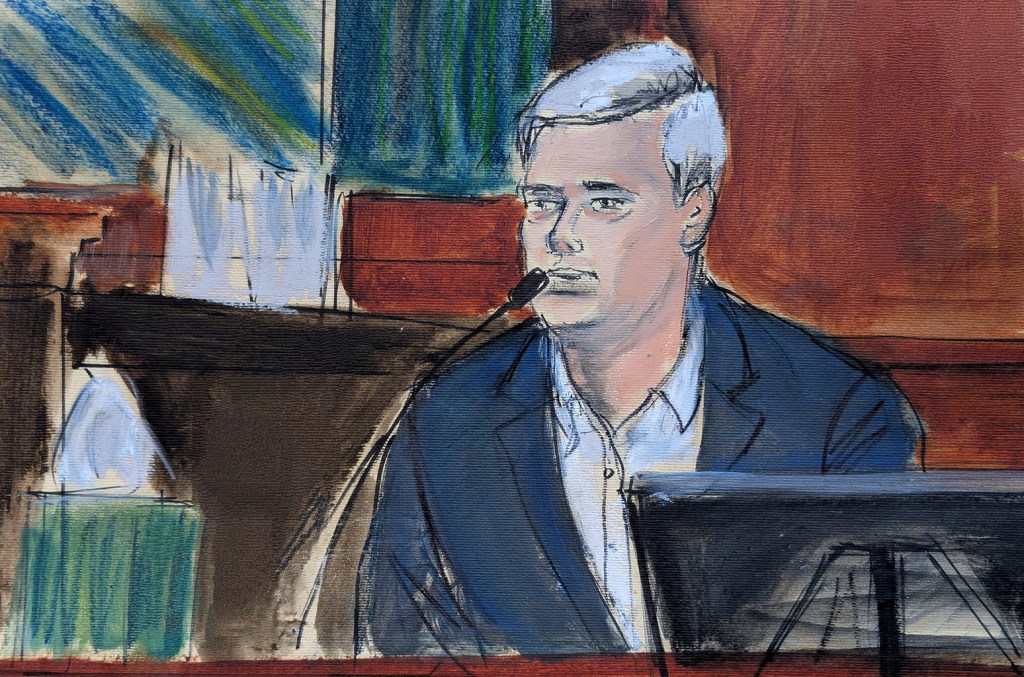
Jurors at Sean “Diddy” Combs’ sex-trafficking trial heard testimony Wednesday (May 21) from a psychologist about abusive relationships and from one of the hip-hop mogul’s former assistants, who was granted legal immunity before he took the stand.
Midway through the second week of Diddy’s trial, prosecutors called Dawn Hughes, a clinical psychologist who also testified at the sex abuse trials of disgraced R&B singer R. Kelly and NXIVM sex cult leader Keith Raniere, as well as in Johnny Depp’s civil defamation case against Amber Heard.
Hughes is one of many witnesses already called by prosecutors, who claim Combs coerced longtime girlfriend Cassie Ventura and others into participating in drug-fueled sex shows known as “freak-offs.” Defense attorneys have said the events were consensual.
On the stand, Hughes said it’s common for victims of abusive relationships to stay for years because they feel trapped: “They experience a tremendous amount of shame, humiliation, degradation,” Hughes told the jury, as reported by CNN, before later adding that victims often use substances to “numb” themselves.
Later in the day, the jury heard from George Kaplan, a former assistant to Diddy who was subpoenaed to testify, according to NBC News. After concerns that Kaplan might invoke his Fifth Amendment right to not testify, prosecutors granted him immunity so that he could do so without concern of prosecution.
Kaplan testified that part of his job was setting up and cleaning up rooms for freak-offs, after which he would often find liquor bottles and baby oil strewn around the hotel rooms. He said he understood that Diddy’s reputation had to be closely safeguarded: “Protecting him and protecting his public image was very important and that was something I was very keen on doing,” Kaplan said.
Combs was indicted in September, charged with running a sprawling criminal operation aimed at facilitating the freak-offs — elaborate events in which Combs and others allegedly pressured Ventura and other victims into having sex with escorts while he watched and masturbated. Prosecutors also say the star and his associates used violence, money and blackmail to keep victims silent and under his control. (Read Billboard‘s full explainer of the case against Diddy here.)
Once one of the music industry’s most powerful men, Combs is accused of racketeering conspiracy (a so-called RICO charge), sex trafficking and violating a federal prostitution statute. If convicted on all of the charges, he faces a potential life prison sentence.
During the first week of the trial, Ventura herself spent four days on the stand detailing how Combs allegedly controlled and physically abused her during their 11-year relationship. She said the sex parties left her feeling “humiliated” but that she felt she had no choice but to participate.
Defense attorneys maintain that Ventura and other women consensually took part in the sex parties. They’ve admitted that Combs had committed domestic violence during his and Ventura’s “toxic” relationship and had unusual sexual preferences, but that he had never coerced her into participating in his “swinger” lifestyle.
While cross-examining Ventura, Combs’ attorneys showed jurors huge numbers of text messages and emails between the couple — some romantic, others graphically sexual — in an effort to show that Ventura was a willing and, at times enthusiastic, participant in the freak-offs.
The trial will continue Thursday (May 22), first with more testimony from Kaplan and then from rapper Kid Cudi, who will likely be asked about an infamous incident in which Combs allegedly set Cudi’s car on fire as payback for dating Ventura. Cudi, a surprise witness, was originally going to take the stand on Wednesday, but his testimony was postponed.
DaBaby has won a court order tossing out assault and battery claims over a 2022 brawl with the brother of his ex-girlfriend DaniLeigh, though the rapper could still be on the hook financially as the case continues against a bowling alley where the attack allegedly occurred. Los Angeles County judge Huey P. Cotton released an […]
Rod Wave (born Rodarius Green) was arrested on Tuesday (May 20) in Georgia and booked into Fulton County Jail on aggravated assault and possession of a firearm charges. Explore Explore See latest videos, charts and news See latest videos, charts and news According to jail records viewed by Billboard, he was hit with 12 additional […]

 State Champ Radio
State Champ Radio 